Summer cottages have long been the main means of survival for most Russians. In the conditions of an unstable economy and low social security, our citizens selflessly cultivate the land in order to get a saving harvest.
And in order not to lose their last stronghold, they need to legally secure the land allotment for themselves. Fortunately, the state declared privatization free of charge for the people and greatly facilitated this procedure for a rather large group of landowners.
Why privatize country land
Timely privatization of the garden plot may lead to disastrous consequences for its owner:
- The actual owner of the land without a title to it can be evicted at any time.
- If the right to land is established on the basis of a lease, and its term expired before the registration of land, then problems with registering it as property cannot be avoided.
- Land ownership may be reduced due to land surveys made by neighbors and the lack of documents defining the boundaries of your allotment.
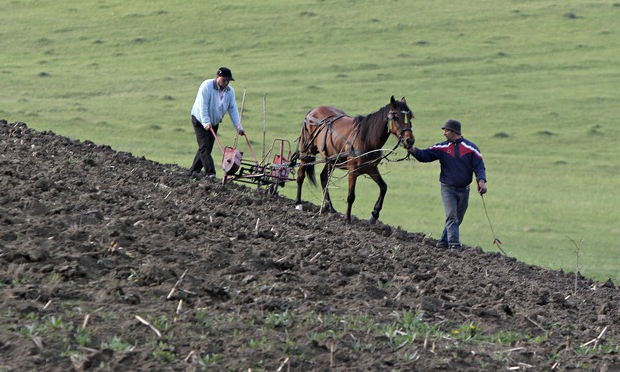
Therefore, timely privatization of a summer residence will not only secure land for you, but also save you from possible territorial losses and paper problems.
Simplified Privatization
According to the laws of the Russian Federation, land registration in ownership can be carried out both in the form of privatization of a land plot, and under a sales contract. Whereas the privatization of the land, from the point of view of lawyers, implies the free transfer of land into the ownership of its user.
In the USSR, where, as we know, there was no private property, summer cottages were issued to citizens or their associations on the basis of lifetime inheritance and unlimited use.
In the dashing 90s, when the legal system of the new Russia was not yet formed, and the old did not give sufficient reasons, the land was distributed without any legal rights.
Only since 2001, the legislative framework for land ownership has been brought up. However, what to do with those unregistered possessions that citizens received in previous decades?
The new Land Code of the Russian Federation resolved this issue by establishing a so-called summer cottage amnesty.
Basic laws governing the privatization of summer cottages
There are 3 legislative acts on the basis of which the privatization of a land plot can be carried out according to a simplified scheme:
- The 2001 Law granting the right to preferential free privatization of land to persons who inherited it or for unlimited use until the introduction of the Land Code of the Russian Federation.
- The Law on Summer Amnesty of 2006, thanks to which free privatization was extended until March 1, 2015.
- Amendments to the fundamental law of January 1, 2015, simplifying the procedure for free registration of land for members of horticultural associations. Thanks to it, gardeners who did not manage to privatize their hacienda of the Soviet era have the right to register the land as property, regardless of the date of joining the partnership or cooperative, by preparing a small package of documents.
Thus, it became possible to privatize the garden by a lightweight system for citizens who received land back in Soviet times and during the years of perestroika.
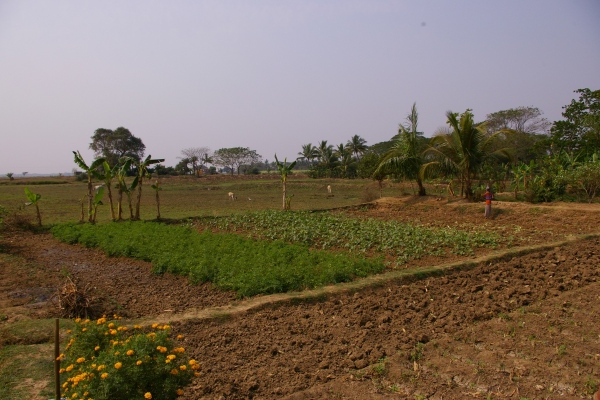
Types of actual ownership of summer cottages
Much depends on whether you received the cottage in personal possession or as a member of a gardening partnership.
If you are the sole owner of the land and received it as a separate territory on the basis of the right of lifetime inheritance, permanent unlimited use or without indicating any right, then the privatization of the garden plot is much simplified for you.
You only need to renew your actual tenure land ownership.
If your garden plot is part of the common land previously transferred by the state to the association of gardeners (partnership, cooperative) on the basis of free urgent use, and you received as a result of its distribution among gardening members, then its privatization is necessary.
And this is a multi-stage difficult path that you have to go in order to formalize your actual right to own a specific land plot.
The procedure and conditions for the privatization of personal land ownership
So, as the only owner of your land, you can register your right to property under the terms of a "summer amnesty" in the local department of Rosreestr by contacting them with the appropriate application.
In this organization you must provide documents for the garden plot:
- Certificate of the Land Committee or Decree on the allocation of land to you as a lifetime inheritable possession or permanent use;
or
- a document from local authorities confirming the absence of any right to land;
- cadastral plan (aka passport) of a land plot.

Types of gardening associations
Horticultural partnerships that have in their possession a common plot of land distributed between its members are:
- commercial;
- non-profit.
Land plots in commercial-type gardening partnerships are divided by their founders between members of this association on the basis of mandatory cash contributions. That is, their goal is to make a profit.
At the same time, garden non-profit partnerships (SNT) were created to ensure the socio-economic needs of citizens. Land in such organizations belongs to a meeting of gardeners who distribute it among themselves on an equal footing.
Under the law, free privatization of a land plot is guaranteed to non-profit citizens horticultural partnership and who received land for indefinite use or for life with the transfer to the heirs before the entry into force of the decision on gardening, summer cottage and other partnerships of April 15, 1998
The procedure for privatizing a summer cottage in SNT
As a rule, landowners from garden associations have only one document - a gardener's book, testifying to their membership in a partnership or cooperative. But she cannot confirm the ownership of the plot.
Therefore, in order to privatize the cottage, the following steps must be taken:
- To apply to local authorities with a request for a land plot and the necessary documents.
- On the basis of the decision of the local authority on transferring the land to the gardener's property, to pass the state registration of the right of ownership in Rosreestr.
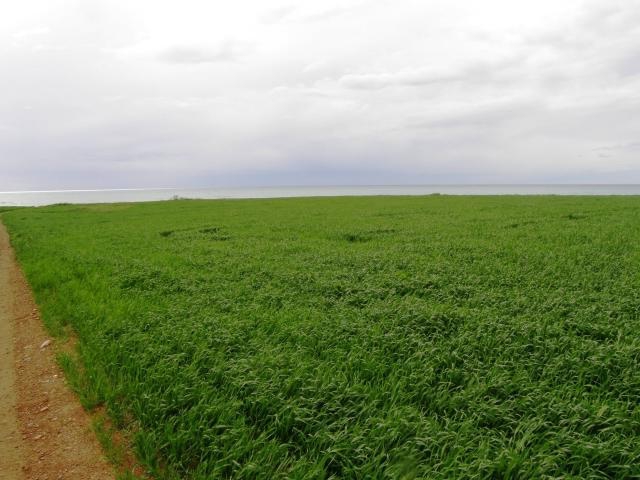
Documents to the local administration
The list of documents required by the municipality to make a decision on your issue includes:
- Applicant's passport.
- SNT constituent documents certified by a notary.
- Description of the location of the garden. The document is compiled by the owner of the land in free form. It must contain information on the area and territorial boundaries of the land allotment, which the applicant wishes to privatize.
- The decision of the board of the partnership, including information about the applicant and his gardening plot. The document confirms both the ownership of the land to the applicant and the correspondence of the description of the plot to its real location.
The authorized body may request from the applicant additional documents:
- an act confirming the allocation of land to a citizen;
- certificate of citizen's right to life inheritance and ownership of the site;
- another document confirming the right to use the site;
- an extract from the state register that SNT is non-profit;
- cadastral map of the privatized land territory.
All of the above documents by law should be considered by the municipality for no more than two weeks. After that (with the correct paperwork and the absence of obstacles to privatization), you will receive a decision on the transfer of the land to personal ownership. You should contact him at the Federal State Registration, Cadastre and Cartography Service (Rosreestr).
Documents in Rosreestr
The list of documents that will be required by the state registration service to register your right to land consists of:
- applicant's application for registration;
- title document - decisions of the local authorities on the provision of land in the ownership of the applicant;
- state duty receipts;
- cadastral passport of the site.
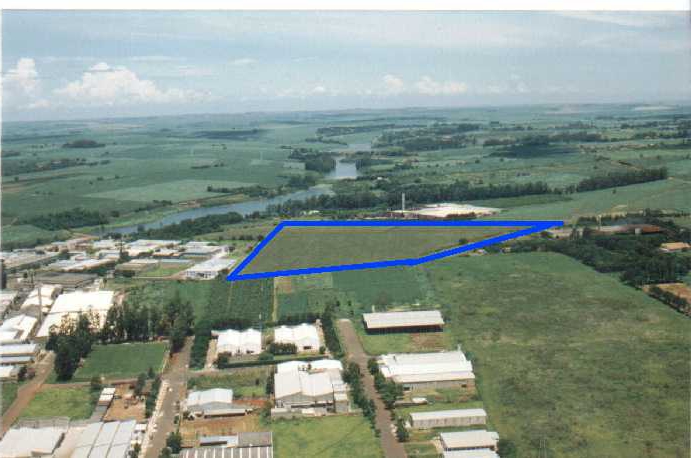
What if there is no cadastral passport to the site?
Without a cadastral passport, the privatization of a garden plot is impossible, since you will not be able to prove your rights to land ownership without a document indicating the exact address of the cottage allotment, its area, land boundaries, as well as a detailed drawing plan of your land tenure.
A cadastral plan is also an important condition for legalizing procedures such as:
- purchase and sale of a garden plot;
- construction of a house or garage on the territory of the land allotment;
- land inheritance;
- appeal to court;
- donation or exchange of a garden plot, etc.
Without a cadastral passport, the listed acts simply do not have legal force.
You can order a cadastral passport for a land plot at the Cadastral Chamber or at the IFC (Multifunctional Center).
The cadastral passport registration algorithm and necessary documents
Turning to the authorized authority, you must perform the following actions:
- Make an application for a passport to the garden plot according to the appropriate model or contact the registrar for help and certify the form completed by him with a personal signature.
- Pay state duty.
- Present a check on the payment of state duty and your passport.
- Get a receipt on the provision of information from Rosreestr with the indication of the passport readiness period (maximum term of readiness is 14 working days).
- To appear on the specified day for the finished document to the site with your own passport and receipt.
For cadastral registration of the land Rosreestr will ask you for 2 documents:
- A document confirming the location of the boundaries of the site.
- Boundary plan.
It is important that Rosreestr does not always require gardeners to survey land on the ground. A cadastral plan can be drawn up on the basis of data from a title document.
Land surveying of a garden site
Land surveying involves the definition of the boundaries of the site through their installation or restoration and fixing on the ground. So if you have long suspected your neighbor of encroaching on a part of your land, then you cannot do without land surveying. In addition, land plots in gardening associations were not subject to land surveying during their organization, therefore this procedure is necessary to isolate your plot from the rest of the collective land tenure.

Surveying is a paid comprehensive service that is provided by surveying companies, and it lasts from 10 to 14 days. In general, the boundary plan is made 1.5 months.
For land surveying land management company will need the following documents:
- title document to land (certificate of title to land, the decision on the provision of land or other);
- passport of the owner of the land (copy).
Possible interference with the privatization of a summer cottage from SNT
Privatization of a garden plot is often fraught with a lot of obstacles, such as:
- Inconsistency (excess) of the size of the privatized territory with those indicated in the cadastral passport.
- The mismatch between the real area of the comradely land allotment and that indicated in his garden book.
- Non-observance of the external borders of the land plot as a result of their merger or mixing with a land plot of another category or belonging to another land user.
- The difference in data on current land owners with previously submitted reports by SNT representatives.
- Failure to comply with SNT fire and sanitary safety rules.
- Tax debts and outstanding administrative penalties from SNT.
- The presence of unformed objects in the privatized territory of the horticultural partnership: baths, garages, wells, greenhouses.
- Unwillingness of some part-holders of the partnership to privatize their plots.
How to prepare for privatization of the site in SNT
To avoid the various risks and delays that the privatization of a plot in a garden partnership may entail, it is recommended that you do the following in advance:
1. Visit the leadership of SNT, get acquainted with its constituent documents and take copies of them:
- copy of the certificate of land rights;
- a copy of the part of the master plan of SNT, which indicates the location of your site, with the signature and seal of the head of the gardening association;
- a copy of the membership card certified by the chairman of the SNT;
- copy of extract from minutes of the general meeting, confirming your entry into gardening.
2. Take advantage of legal advice to keep abreast of all the intricacies and pitfalls of privatization in your case.
3. Find out if your site is not among the lands that are not subject to privatization.
Reasons for the refusal to privatize summer cottage
In accordance with the legal norms of the Russian Federation, executive authorities may not give permission to privatize garden land for the following reasons:
- If the privatization of this section is prohibited by federal law.
- If in the future it is planned to use this site for any purpose by the state or municipal government.
- If the plot is removed from the land turnover.
Paid privatization of land
According to the provisions of the Land Code of the Russian Federation, citizens can acquire land in private ownership from the state for a fee. That is, to draw up ownership of the land through the sale.
The cost of the land plot is calculated by a certain state body, to which this type of land ownership is assigned. (The federal authorities are responsible for the federal lands, and the local authorities are responsible for the property of the subjects of the federation.)
The cost of garden plots for paid privatization is formed on the basis of their cadastral price and cannot exceed it. The cadastral value is established on the basis of cadastral valuation of a particular land area.
Terms of registration of ownership of land
The procedure for free privatization is simplified and therefore takes less time than registering land for money. So if you have all the necessary documents on hand, the total privatization period of garden plots will be from 18 calendar days (registration of ownership in Rosreestr) to one month (18 + 14 calendar days - to obtain permission to register in the municipality).
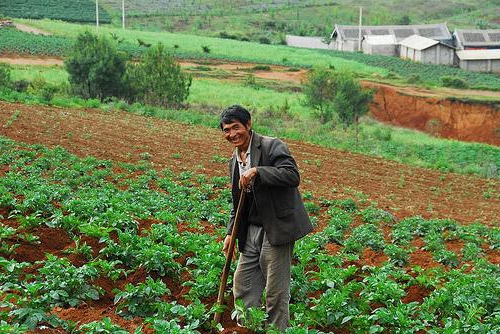
With regard to paid land registration, everything is much more complicated. A citizen who wants to buy land from the state goes through several stages of waiting:
- 14 days for a decision by the executive branch to transfer land to property;
- 1 month for the development and approval of the cadastral passport by relevant organizations;
- 1 week to conclude a contract of sale.
On average, taking into account the collection of documents and the necessary preparations, the process of paid privatization takes from 6 to 9 months.
Dates of land privatization
Landowners who have received the right to preferential privatization of land on the basis of the law "On Country Amnesty" in 2006, can register a summer cottage in the property for free in a simplified manner (without applying for permission to the authorities). This order was valid until March 1, 2015.
On the initiative of the Ministry of Economic Development, which developed an amendment to the fundamental law, from January 1, 2015, preferential privatization was extended until December 31, 2020.
In general, the privatization of land (on the basis of sale) used to service private residential buildings or gardening, according to the rules of the existing land legislation, has no time limits.



